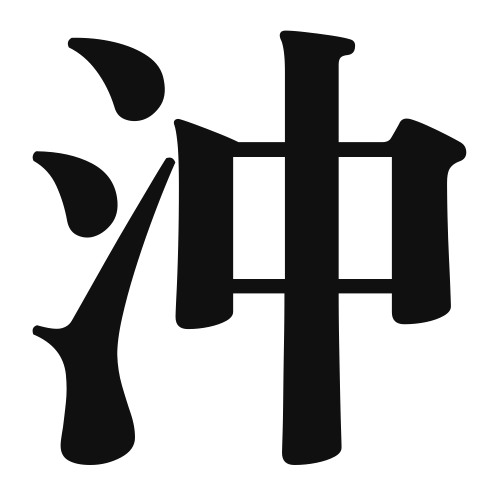1. Overview of Meaning
The kanji “沖” (pronounced “oki”) generally means “offshore” or “open sea.” It refers to the area of water that is away from the shore, often associated with deeper waters and maritime activities.
2. Formation and Radical
Formation of the Kanji: The kanji “沖” is a compound character that combines elements to convey its meaning. It is formed from the radical “水” (water) and the character “冲,” which relates to the concept of water flowing or moving.
Radical: The radical of “沖” is “水” (water), which is commonly found in kanji related to water or liquid.
3. Examples of Usage
Common Words and Phrases:
- 沖縄 (Okinawa) – a famous island in Japan located in the Pacific Ocean.
- 沖合 (oki ai) – offshore.
Example Sentences in Daily Conversation:
- 「今日は沖に出て釣りをする予定です。」(Today, I plan to go fishing offshore.)
- 「沖縄の海はとても美しいです。」(The sea in Okinawa is very beautiful.)
4. Synonyms and Antonyms
Similar Kanji:
- 海 (umi) – meaning “sea,” which refers to a larger body of saltwater, but does not specifically imply the distance from the shore.
- 湾 (wan) – meaning “bay,” which refers to a body of water partially enclosed by land.
Antonyms:
- 岸 (kishi) – meaning “shore” or “bank,” which is the land adjacent to a body of water.
- 陸 (riku) – meaning “land,” which refers to the solid surface of the Earth, as opposed to water.
5. Cultural and Historical Background
Relation to Japanese Culture: The concept of “沖” is significant in Japanese culture, especially in relation to fishing, maritime activities, and the beauty of the ocean surrounding the islands of Japan.
Proverbs and Idioms:
- 「沖に出る」(Oki ni deru) – meaning “to go offshore,” often used to describe embarking on a new adventure or journey.
- 「沖縄の風」(Okinawa no kaze) – referring to the unique culture and lifestyle of Okinawa, often associated with relaxation and harmony with nature.
